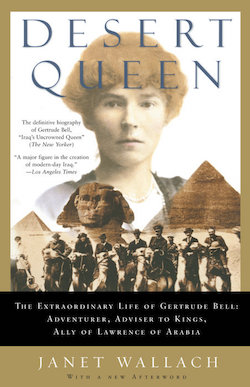

If you just want to familiarize yourself with this important historical figure, the afterword summarizes the highlights in about 4 ½ pages.Īnd I’ve now concluded the nonfiction challenge! Hailed as the definitive biography of Gertrude Bell, this book is worth the effort for those who want a full account. In the end, despite Bell’s impressiveness and the importance of the history, it was a slow read. She dotes on her father and seems desperate to impress him with her success in establishing herself as a "Person." Wallace also plays up, in sometimes jarringly melodramatic prose, the details of Bell’s unhappy love life. Numerous excerpts from her letters home are interspersed. It’s almost a day-by-day account of the "notables" Bell took coffee with and dazzled with her intelligence. At times, it’s hard to see the forest for the trees as the big picture is obscured by somewhat repetitive detail. It was hardly a stable area even before the English and French meddled in their affairs, but such a messy bit of meddling-necessary, of course, in order to ensure access to Middle Eastern Oil-was unlikely to have a nice, clean outcome.

This is all important history and helps the reader to understand why things are such a mess today. She pretty much hand-chose Iraq’s first king. After the war, she continued on in a semi-official to official capacity and was instrumental in drawing the boundaries for nascent nations. She advised the men in charge, whether they wanted her opinions or not. She had already broken so much ground that, despite being female, she was drawn into Britain’s Intelligence Service and served, throughout the war, as a collector of vital information.

Her physical stamina and mental capabilities were truly astounding.Īt the outbreak of WWI, Great Britain needed information about the Middle East. She ventured out among the Arabs, meeting and befriending them. Fascinated by the Middle East, she began her career as an archaeologist, visiting, mapping and writing about several important ancient sites. Brilliant, well-traveled, fluent in multiple languages, and extraordinarily self-confident, she blazed trails where few Europeans and no Victorian-era women had ever been.


 0 kommentar(er)
0 kommentar(er)
